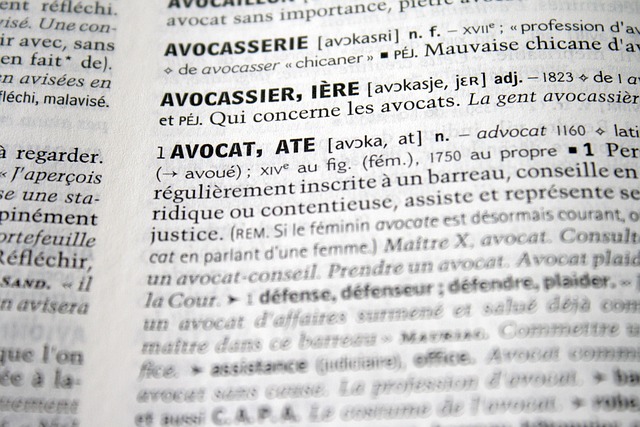Regulatory compliance is vital for businesses, ensuring fair practices and minimizing legal risks, especially in complex class action lawsuits. Effective compliance involves understanding and adhering to laws, rules, and regulations, fostering trust with stakeholders. In the context of class action lawsuits, determining eligibility goes beyond numbers, requiring rigorous legal analysis and meticulous screening of potential plaintiffs' claims. Law firms must master Class Action Lawsuit (CAL) Eligibility Requirements, involving complex court criteria, to maintain CAL status and mitigate risks. Businesses should implement robust compliance strategies, including staying informed about industry regulations, regular policy reviews, employee training, and strong internal controls, to avoid legal challenges and white-collar crimes.
Regulatory compliance is a crucial aspect of any business operation, yet it’s often overlooked until legal troubles arise. This article guides you through essential aspects of regulatory adherence, focusing on class action lawsuit eligibility requirements. We’ll explore basic concepts, common challenges, and effective strategies to navigate complex compliance issues. By understanding the factors influencing eligibility, businesses can mitigate risks and avoid costly legal battles stemming from non-compliance, particularly in class action lawsuits.
- Understanding Regulatory Compliance: The Basics and Importance
- Class Action Lawsuits: When Is Eligibility Determined?
- Key Factors in Ensuring Compliance with Eligibility Requirements
- Common Pitfalls and Challenges in Regulatory Compliance Cases
- Strategies for Navigating Complex Compliance Issues and Avoiding Legal Troubles
Understanding Regulatory Compliance: The Basics and Importance

Regulatory compliance is a critical aspect of any business operation, as it involves adhering to laws, rules, and regulations set by governing bodies. These guidelines are in place to ensure fair practices, protect consumers, and maintain order within industries. Understanding this concept is essential, especially when considering the potential consequences of non-compliance. A Class Action Lawsuit Eligibility Requirements often hinges on a company’s ability to demonstrate regulatory adherence.
An unprecedented track record of compliance can significantly strengthen a business’s defense against legal challenges. It showcases a proactive approach to meeting or exceeding legal standards, which is particularly impactful in cases where avoiding indictment or securing a complete dismissal of all charges is a primary goal. Effective compliance measures not only mitigate risks but also foster trust and transparency with stakeholders, including customers, investors, and regulatory bodies.
Class Action Lawsuits: When Is Eligibility Determined?

In the realm of class action lawsuits, determining eligibility is a complex process that goes beyond mere numbers. While many cases are decided based on the size of the proposed class and geographical reach, achieving extraordinary results hinges on rigorous legal analysis and understanding specific eligibility requirements. Across the country, an unprecedented track record of successful class actions has been achieved by meticulously screening potential plaintiffs who meet all necessary criteria.
This process involves a deep dive into the facts and circumstances unique to each case. Lawyers must consider not only the number of individuals potentially affected but also their shared experiences and the strength of their individual claims. Such an approach ensures that only those with valid grievances are included, thereby enhancing the overall effectiveness of the lawsuit in pursuing justice for all.
Key Factors in Ensuring Compliance with Eligibility Requirements

Ensuring compliance with Class Action Lawsuit Eligibility Requirements is paramount for any legal strategy. Key factors include a thorough understanding of the specific criteria set forth by courts and legal precedents, as well as meticulous record-keeping to document each step of the eligibility process. Law firms must be adept at interpreting complex rules and applying them consistently across cases to maintain eligibility and avoid disruptions that could lead to a Class Action Lawsuit.
A robust compliance strategy involves staying updated on evolving regulations, proactively addressing potential gaps in eligibility, and maintaining open lines of communication with clients and stakeholders. By achieving extraordinary results in jury trials and winning challenging defense verdicts, law firms demonstrate their proficiency in navigating these requirements. This not only safeguards against legal repercussions but also bolsters the firm’s reputation for competent representation.
Common Pitfalls and Challenges in Regulatory Compliance Cases

Navigating regulatory compliance can be a complex landscape for businesses, often filled with common pitfalls that can lead to significant challenges. One of the primary issues is misinterpreting or overlooking specific eligibility requirements for certain legal protections, such as those related to class action lawsuits. Companies must stay vigilant and thoroughly understand the applicable laws and regulations to avoid costly mistakes. Failure to meet these standards can result in a complete dismissal of all charges, leaving businesses vulnerable to substantial financial and reputational damage.
Moreover, cases involving white-collar and economic crimes pose unique difficulties due to their intricate nature. Defending against such accusations often requires an unprecedented track record of legal expertise and strategic planning. Businesses must be proactive in implementing robust compliance programs and ensuring that all employees are trained on regulatory updates to mitigate these risks effectively.
Strategies for Navigating Complex Compliance Issues and Avoiding Legal Troubles

Navigating complex compliance issues is a critical aspect of any business operation to avoid potential legal troubles. A robust strategy involves understanding and staying ahead of evolving regulations specific to your industry. Regularly reviewing and updating internal policies, training employees on changing laws, and implementing a strong compliance program are essential steps. This proactive approach can significantly mitigate risks associated with non-compliance.
Additionally, businesses should focus on meticulous documentation and record-keeping. By maintaining comprehensive records, companies can demonstrate their commitment to adhering to legal requirements, making it harder for critics to initiate Class Action Lawsuit eligibility processes. Remember that preventing a white-collar or economic crime issue is far more beneficial than facing a jury trial and the potential consequences of a complete dismissal of all charges.
Regulatory compliance is a complex landscape that requires meticulous attention, especially in class action lawsuits. By understanding the basics and importance of compliance, recognizing common pitfalls, and adopting strategic approaches, businesses can effectively navigate eligibility requirements for class action lawsuit participation. This ensures fairness, protects stakeholders, and fosters a more transparent legal process. Remember, proactive measures to ensure compliance with class action lawsuit eligibility requirements are key to avoiding legal troubles and achieving positive outcomes.






